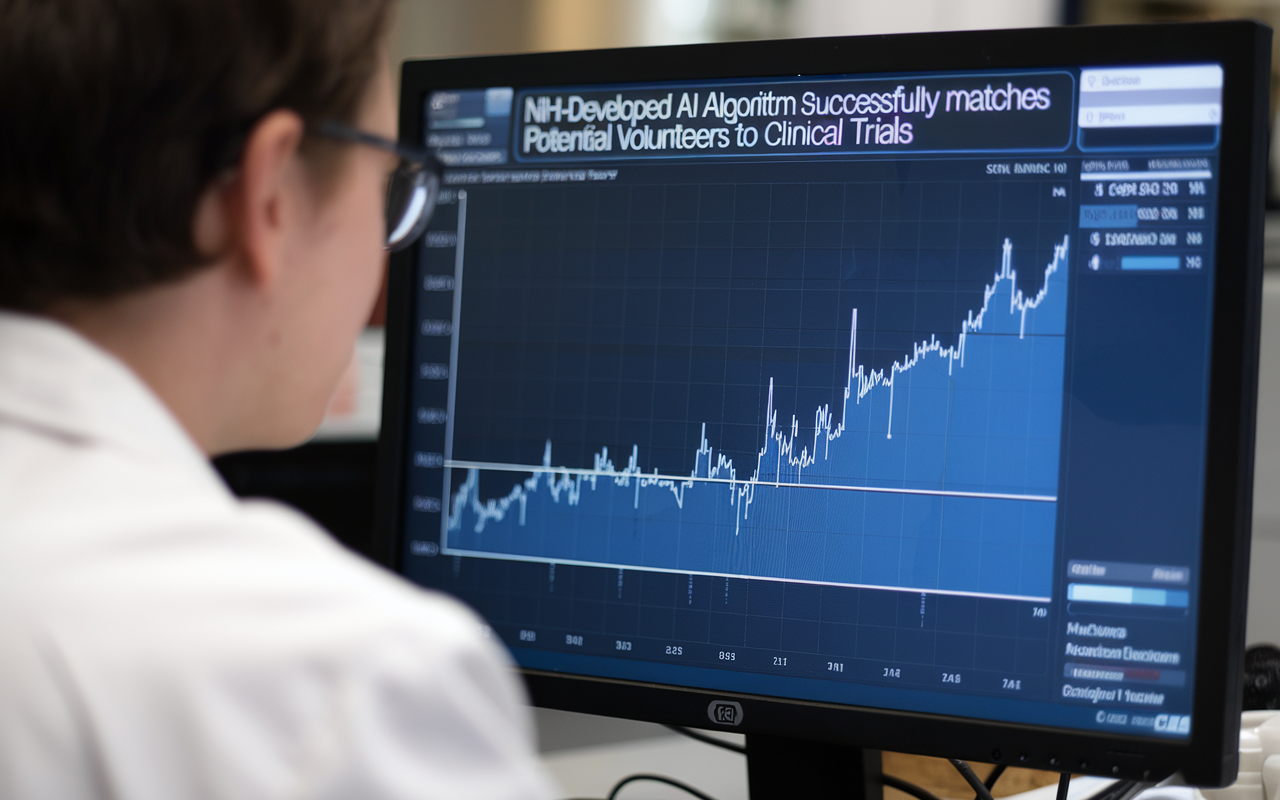Welcome BioPharmaPulse Enthusiasts
Welcome to another edition of BioPharmaPulse! Together, let's dive into the cutting-edge developments that are shaping the future of biopharmaceuticals.
What's in this issue:
- 🔬 Discover how phage therapy is making a comeback against antibiotic resistance.
- 🤖 Learn about an AI algorithm revolutionizing clinical trial participation.
- 💉 Uncover the first new asthma attack treatment in 50 years.
Inspiration of the Day
"Innovation is the heartbeat of progress in biopharma."
Latest Developments
🔬 Phages: Towards a Targeted Alternative to Antibiotics (1 minute read)

Rundown:
After decades in the shadows, phage therapy is making a resurgence as a potential solution to antibiotic resistance. Scientists have developed a tool to recommend the best phage cocktail for individual patients, bringing personalized medicine to bacterial infections.
Keypoints
- 🦠 Phage therapy uses viruses to combat bacterial infections.
- 💊 Antibiotic resistance has renewed interest in phage therapy.
- 🧬 A new tool helps select effective phages for patients.
- 🎯 Phage diversity and specificity enable targeted treatments.
Why it matters:
As antibiotic resistance becomes a global health threat, phage therapy offers a promising, targeted alternative. This advancement could revolutionize how we treat bacterial infections, ushering in a new era of precision medicine.
🤖 NIH Develops AI Algorithm to Match Volunteers to Clinical Trials (1 minute read)

Rundown:
Researchers at the NIH have created TrialGPT, an AI algorithm that streamlines the process of matching volunteers to clinical trials. This innovation simplifies enrollment by identifying relevant studies and explaining eligibility criteria to potential participants.
Keypoints
- 🤖 TrialGPT uses AI to match volunteers with clinical trials.
- 🔎 Simplifies identifying relevant studies on ClinicalTrials.gov.
- 📋 Provides personalized summaries of enrollment criteria.
- 🤝 Enhances participation in clinical research.
Why it matters:
By making it easier for volunteers to find suitable clinical trials, TrialGPT could accelerate research and development in biopharma. Enhanced participation speeds up studies, leading to quicker advancements in treatments and therapies.
💉 First New Treatment for Asthma Attacks in 50 Years (1 minute read)

Rundown:
In a significant breakthrough, an injection administered during asthma and COPD attacks has proven more effective than current steroid tablets. This new treatment reduces the need for further medical intervention by 30%.
Keypoints
- 🌬️ New injection treatment for asthma and COPD attacks.
- 💊 Outperforms traditional steroid tablets.
- 📉 Reduces additional treatment needs by 30%.
- ⏳ First major advancement in asthma attack care in 50 years.
Why it matters:
This development offers renewed hope for millions suffering from asthma and COPD. An effective, fast-acting treatment could improve quality of life and reduce hospital visits, signifying a monumental step forward in respiratory care.
Question of the Day
🧐 How do you foresee AI impacting clinical trial enrollment in the next decade?
- 😃 Significantly enhancing participation
- 🙂 Somewhat improving current processes
- 😐 Minimal impact expected
- 🤔 Potential challenges outweigh benefits
Trending
🔎 TrialGPT: AI Matching Volunteers to Clinical Trials
- The NIH's TrialGPT is simplifying clinical trial enrollment by intelligently matching volunteers with suitable studies. Discover how this tool is enhancing clinical research participation.
🦠 Phage Selection Tool for Personalized Therapy
- Scientists have developed a tool to recommend the best phage combinations for patients, paving the way for personalized bacterial infection treatments.
Industry Insight
🦠 The Resurgence of Phage Therapy in Combating Antibiotic Resistance
Learn about the promising return of phage therapy and its potential to revolutionize the treatment of bacterial infections.
Phage therapy, the use of viruses called bacteriophages to target and destroy bacteria, is re-emerging as a powerful tool against antibiotic-resistant strains. This personalized approach leverages the specificity of phages to attack harmful bacteria without affecting beneficial microbes.
By understanding and utilizing phage diversity, researchers are developing tailored treatments that could overcome the limitations of traditional antibiotics. Embracing phage therapy could mark a significant shift in how we address bacterial infections in the future.
Quick Hits
🧠 AI Outperforms Experts in Predicting Study Results (1 minute read)
- Large language models are now able to predict neuroscience study outcomes more accurately than human experts. By distilling patterns from vast scientific literature, AI demonstrates superhuman accuracy in forecasting research results.
👨🔬 Pfizer Appoints New Chief Scientific Officer and President, R&D (1 minute read)
- Pfizer announces the appointment of Chris Boshoff, M.D., PhD, as the new Chief Scientific Officer and President of R&D, effective January 1, 2025. Dr. Boshoff succeeds Dr. Mikael Dolsten, signaling a new chapter in Pfizer's leadership.
Wrap Up
Thank you for joining me on this exploration of the latest in biopharmaceutical innovation. It's an exciting time in our field, with advancements that have the potential to transform healthcare as we know it.
I hope you found these insights valuable and inspiring. Let's continue to stay curious and engaged as we navigate the ever-evolving landscape of biopharma.
Until next time, stay at the forefront of innovation!
Warm regards,
Elliot Reeves | BioPharmaPulse
📣 How did you like today's email?
- 😃 Loved it
- 🙂 It was OK
- 😔 Could be better
